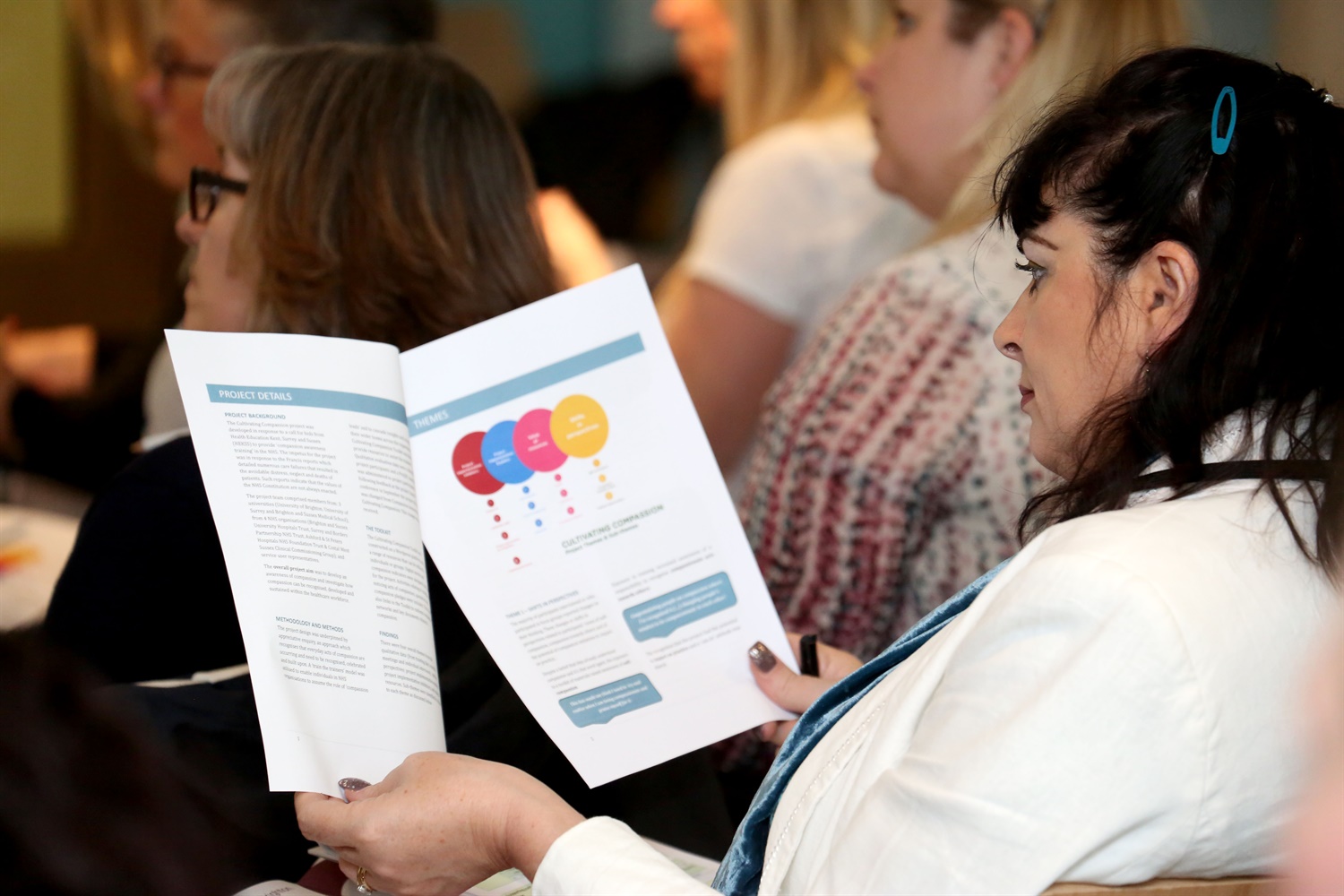02.08.15
Cultivating a compassionate discourse in the NHS
Source: NHE Jul/Aug 15
Dr Julia Montgomery of Brighton & Sussex Medical School, Dr Charlotte Ramage of the University of Brighton and Claire Martin of Brighton & Sussex University Hospitals NHS Trust discuss compassion in the NHS.
The University of Brighton, Brighton & Sussex Medical School and University of Surrey responded to a call from HEKSS (Health Education Kent, Surrey & Sussex) to provide a compassion awareness training programme for the workforce within Kent, Surrey and Sussex. The driver behind the project was the Francis report (2013), with its evidence that the values of the NHS Constitution are not always enacted. The aim was to develop a discourse around compassion in the workforce and investigate how compassion could be recognised, cultivated and sustained.
Methodology
The project design was underpinned by appreciative enquiry, an approach that can be used within an organisation to locate best practice, focusing on what is good and strong and what is already being achieved (‘Appreciative inquiry: a transformative paradigm’, Journal of Organisational Development Network, Watson and Cooperider, 2000). This approach enabled the project team to take a stance that recognised everyday acts of compassion are occurring in the workplace that need to be noticed, valued and built upon. A ‘train the trainers’ model was utilised to enable individuals in NHS organisations to assume the role of ‘compassion leads’ and to cascade insights and strategies to their wider teams across the organisations. A Cultivating Compassion Toolkit was developed to provide resources to assist the trainers and multi-professional workshops were organised that included nurses, doctors, medical students, HCAs, clerical staff, allied health professionals, chaplaincy teams and others.
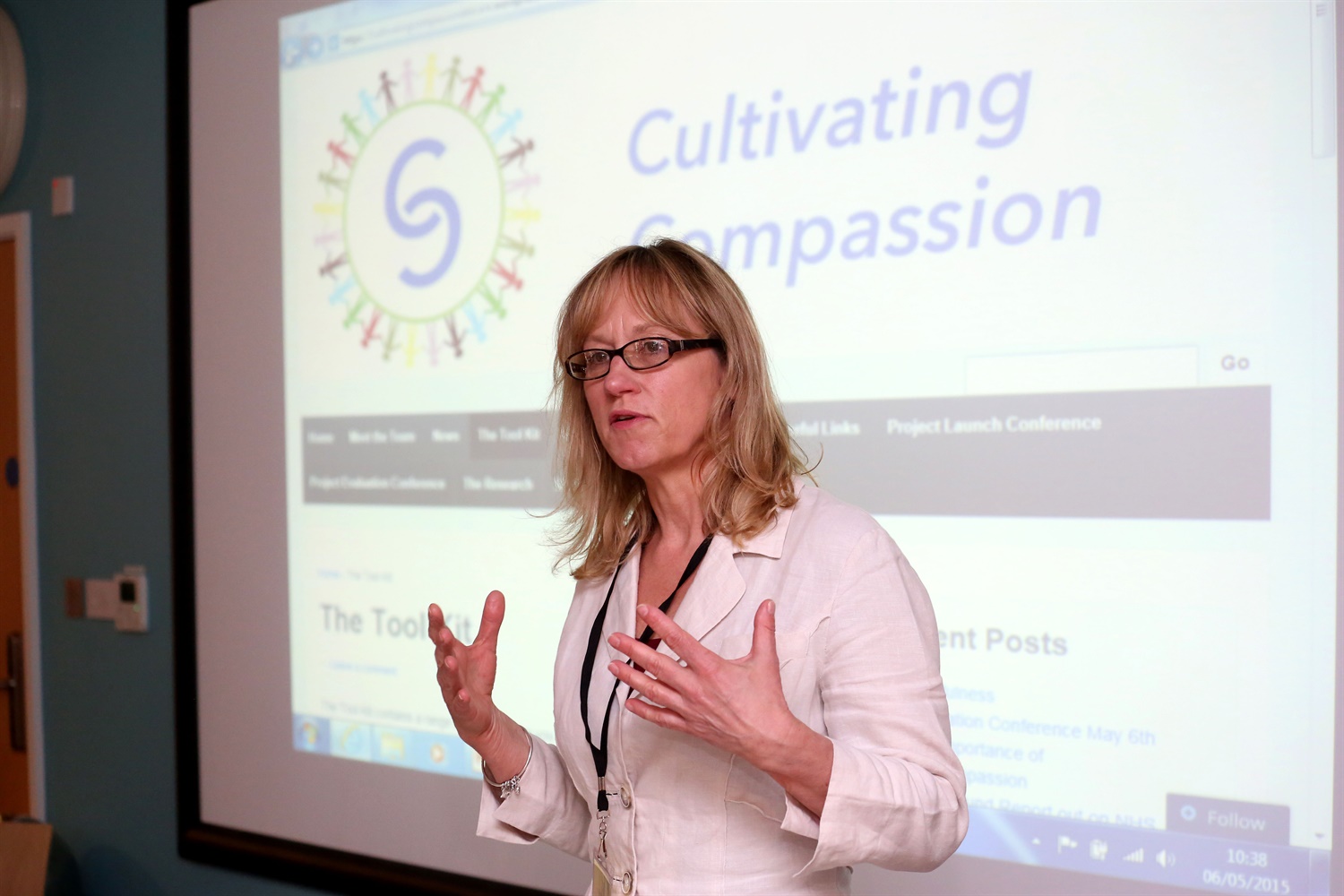
The Cultivating Compassion Toolkit was built on a Wordpress platform (link below) and housed a range of evidence-based tools and resources for individuals or groups. Digital stories and values-based indicators were designed specifically for the project through storytelling and indicator focus groups with staff in each participating organisation. Activities relating to mindfulness, noticing acts of compassion, quotations and compassion pledges were included. There were also links in the Toolkit to national compassion networks and key documents related to compassion. The toolkit contained resources that linked to the areas of self-compassion, team compassion, patient compassion and organisational compassion.
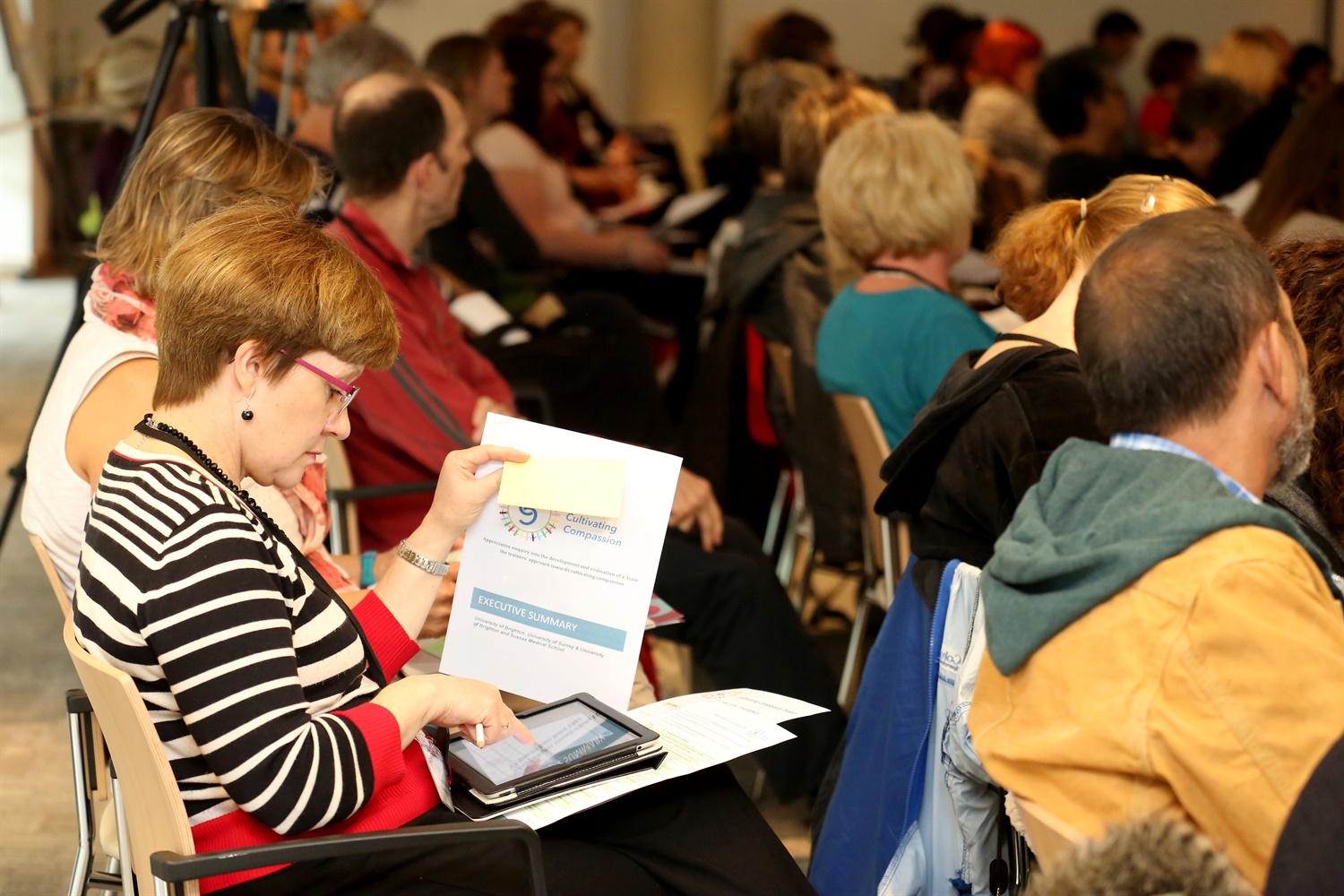
Various themes arose from the workshops and focus groups and within this article we will discuss one of those themes: ‘shifts in perspectives’. Most attendees reported changes in their thinking about compassion. These changes related to their views of self-compassion and compassion towards their colleagues. The data suggested that few had given thought to self-compassion or compassion within teams or their organisation before attending one of the workshops.
Participants were encouraged to voice acts of compassion they had seen in the previous week and write them up on post-its for all to read. A trainer commented on the response from a group of nurses: “When we looked at the post-it notes from the activity, ‘identify an act of kindness in the last week’, they said they really didn’t realise how supportive they were of each other.”
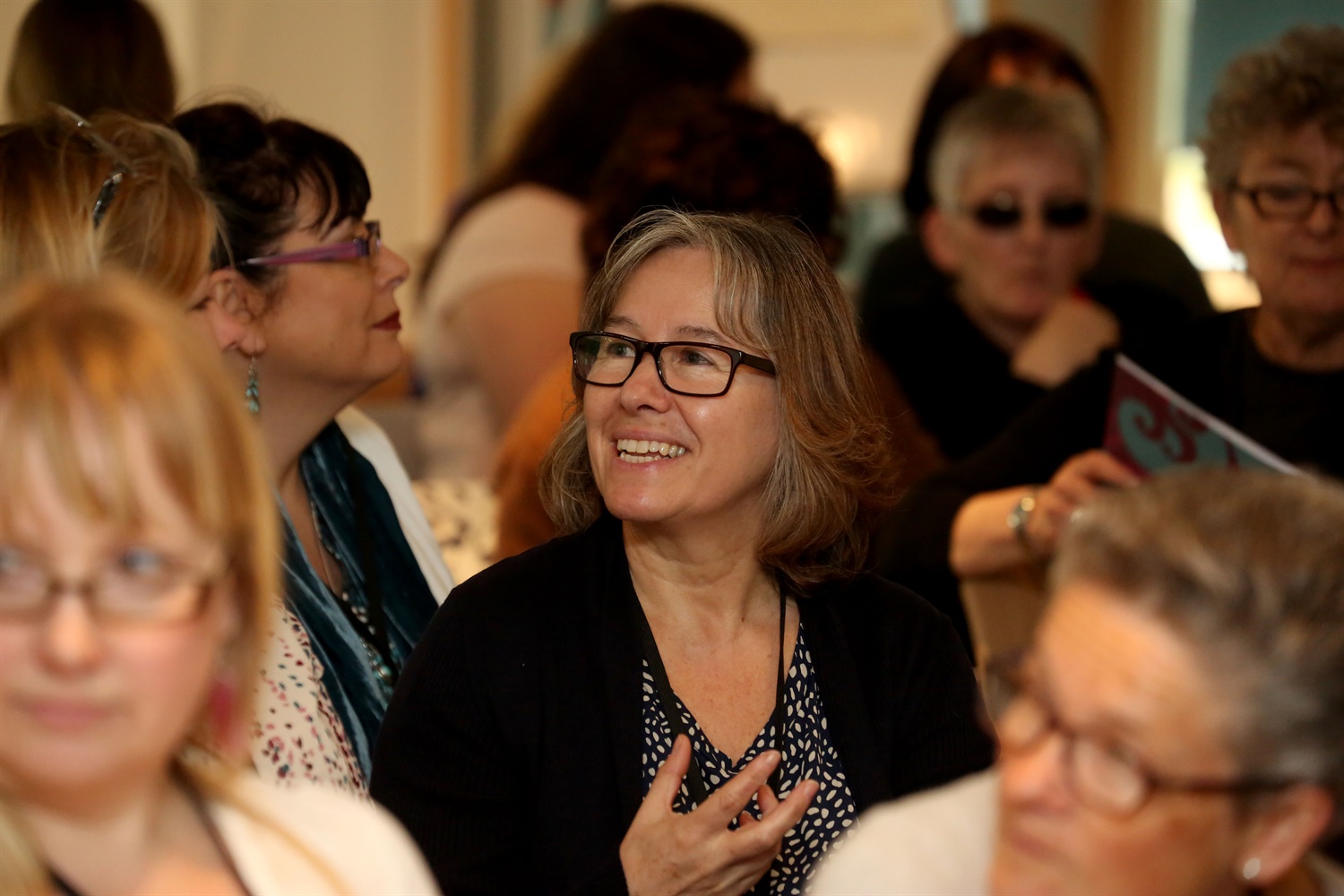
Medical students realised they struggled to note acts of compassion seen in the workplace and as a consequence decided to actively seek out such acts of compassion during their clinical attachment. The medical students reflected that, during the study, they started a discourse within their group on the difference between acts of compassion and normal human behaviour. They also started to see the ‘hidden curriculum’ of health professionals’ behaviour in the workforce, realising the importance of compassion and yet the absence of that word within their own curriculum.
All in a name
There was another shift, in that we changed the name of the project, following feedback from participants. The name change from ‘compassion awareness training’ to ‘cultivating compassion’ shifted the perspective from a perceived personal criticism of an individual’s expression of their professional capacity to care for another, to an ‘inner gaze’ on a need to care for themselves and others they worked with.
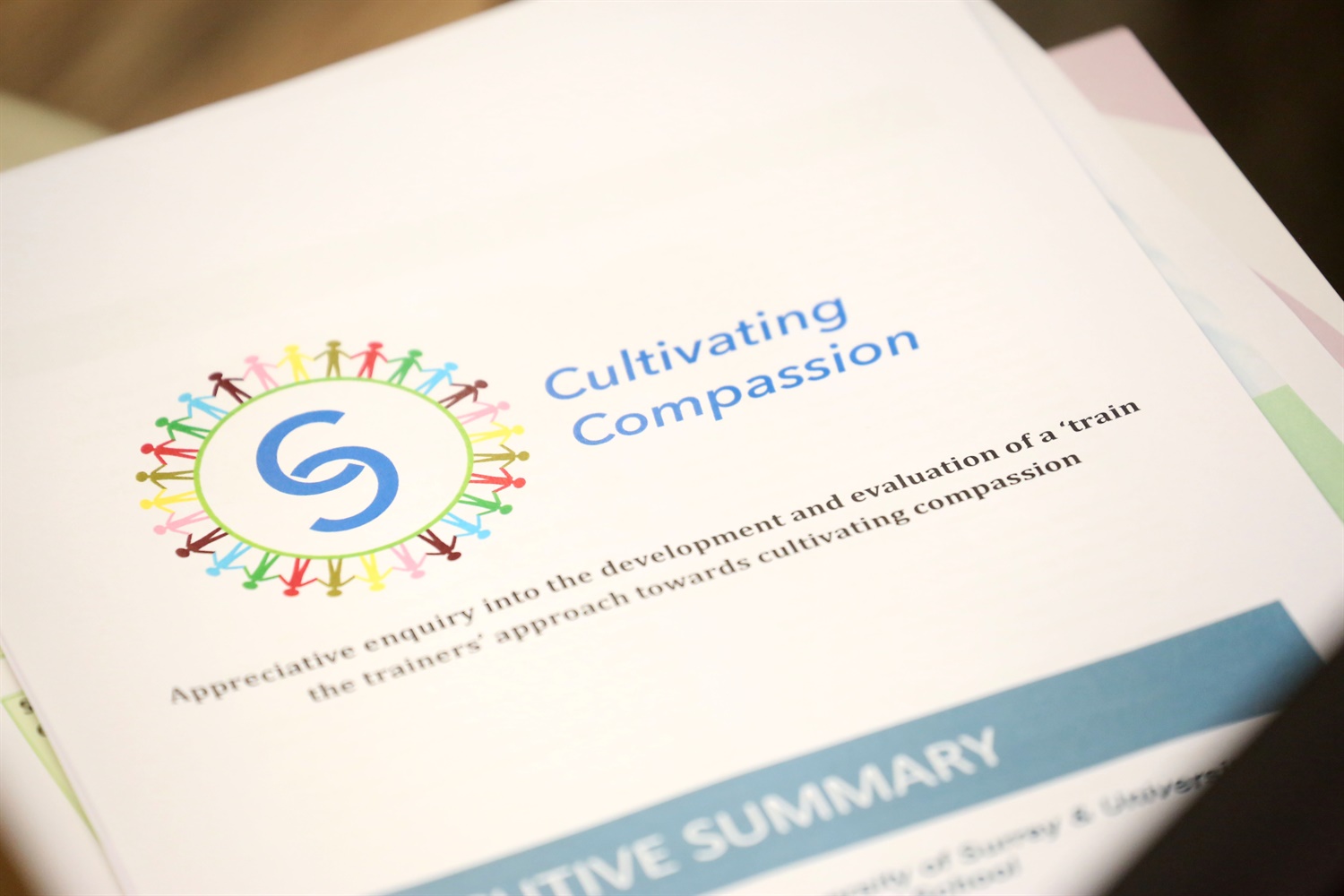
As one participant said: “I think getting away from awareness was good, you know; whereas ‘cultivating’ feels a bit like a social network and we are all coming together as a community.”
Another said: “Compassion training would not be received well. We are celebrating compassion. It’s not that I am not compassionate; it is about what do I need in order that I can do it.”
Discussion
Resources within the toolkit were welcomed and participants gained personally through the workshops and many felt confident to approach colleagues to engage in a discourse about compassion but one of aims of this project was to look at sustainability within NHS organisations.
We learnt very early on that workshops (time away from the clinical area) were not the answer and developed the concept of ‘toolkit on the move’. This meant that resources can be used on a one-to-one basis or by teams within the ward area, usually lasting five to 20 minutes, often at handover, via meetings and opportunistic educational ‘pop-up’ activity in clinical areas. Other successes were the alliance of the toolkit with existing values-based initiatives within the organisation and commitment from the senior training managers.
